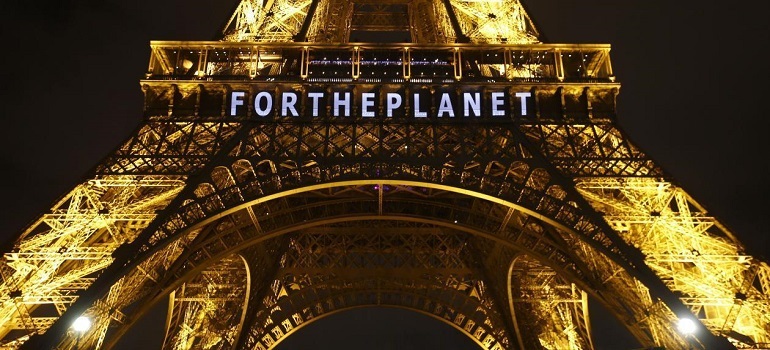
The new report ‘Subtitles to save the World’ shows that words like ‘cats’ and ‘picnics’ both get more mentions on British television than the environment
‘Planet Placement’ launches, encouraging the television industry to weave more environmental messaging into content, no matter the genre
A new report released by BAFTA and albert, supported by analysis from Deloitte reveals how often terms related to climate change are currently mentioned on TV.
The report investigated the current coverage of key environmental sustainability themes within a year’s worth of programming, excluding news programmes, and discovered the most common themes, including the frequency and sentiment of any mentions.
To conduct the research, Deloitte took a year’s worth of subtitling data from 4 broadcasters, representing 40 channels and 128,719 distinct programmes from September 2017 to September 2018 and analysed the data to look at how often words associated with 5 key sustainability terms were mentioned: Food, Travel, Resources, Climate Change and Energy.
The results revealed the terms related to climate change mentioned most often are not the ones that have the biggest impact to reducing our carbon footprint. For instance words associated with ‘energy’ were only mentioned 6% of the time even though energy represents the biggest part of the average person’s carbon footprint at 24%. More commonly used phrases were ‘vegan’ and ‘vegetarian’ however food only accounts for 12% of a person’s footprint.
Delving further into the data, Deloitte were also able to compare how often words such as ‘carbon emissions’, ‘recycle’ ‘hybrid car’ or ‘wind power’ were mentioned and then compare these to other words such as ‘cake’, cheese’, ‘Christmas’ or ‘zombies’. In total, 25 words related to the environment were tracked. Certain words such a ‘carbon offset’ or ‘hybrid car’ were only mentioned 11 times and 22 times respectively. ‘Climate change’ was the second highest tracked term with 3,125 mentions however this still lagged far behind other terms such as ‘beer’(21,648), ‘dog’ (105,245)‘tea’ (60,060) and ‘sex’ (56,307).
When environmental terms were used, the research showed that there was a preference to talk about the issues and the problems rather than the solutions, as references to climate change and global warming far outweighed terms such as electric cars or solar power.
The research was undertaken to coincide with the launch of Planet Placement, a new guide which is designed to challenge and inspire those working in the industry to weave sustainability messages into on screen content, no matter the genre, in order to help make positive environmental behaviours mainstream. A full report of this study can be found on the Planet Placement website at www.planetplacement.co.uk/subtitles-to-save-the-world/
Aaron Matthews, Head of Industry Sustainability at albert said “To help shape society’s response to climate change we cannot rely solely on the current affairs and natural history programmes, we must think creatively and look for other ways to bring sustainability messages to our screens that are both optimistic and inspirational. We are setting up free training sessions for anyone working in the industry, across all genres, so we can begin to explore what a creative response to climate change could look like. I look forward to revisiting this data in a year or two, to see how things have changed.”
Pippa Harris, Chair at BAFTA said: “The TV industry’s call to address climate change is clear. Reducing our impact is a given, but our real opportunity lies in the programmes we make, and in our ability to use powerful human stories to connect audiences with the world around them. We need to understand the links between climate change and society, and act strategically to ensure we do everything in our power to avert the climate crisis. Though it may seem that our future has been taken from us, history is still being created. It is time to write a different script and share it with the world.”
George Johnston, data analytics partner at Deloitte, said: “When starting a piece of research at this scale, you never quite know what you’re going to find, but our entire team was struck by how little terms around environmental sustainability were used. The results highlight that the industry’s current coverage of the topic is out of step, with terms such as ‘Shakespeare’ and ‘gravy’ receiving more mentions over the past year than those related to climate change. There is a huge opportunity for broadcasters to address this, developing their strategies to further communicate messages on sustainability.”
Lynette Huntley, Chief of Staff at Channel Four said: This fascinating piece of research will help us identify what more we can do to challenge perception and inspire change around sustainability.

